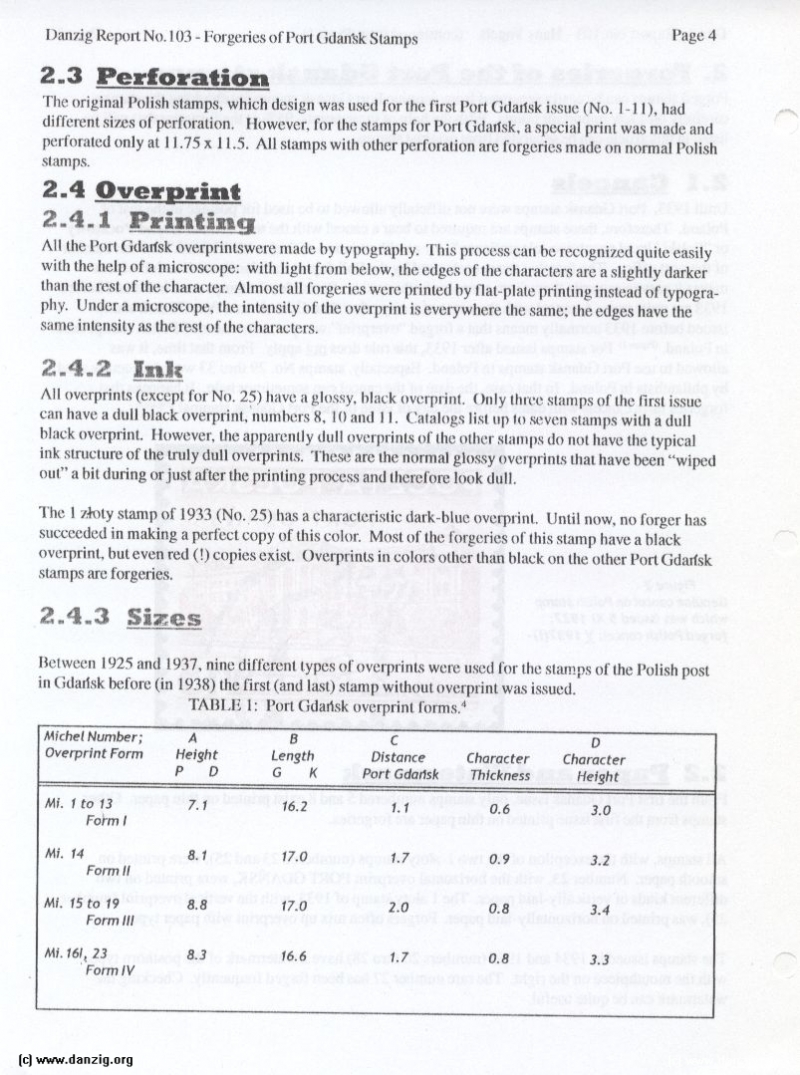
2.3 Perforation
The original Polish stamps. which design was used for the first Port (klarlsk issue (No. I-I I), had different si,es olperforation. However, for the stamps for Port (idadsk, a special print was made and perforated only at I 1.75 x 11.5. All stamps with other perforation arc forgeries made on normal Polish stamps.
2.4 Overprint
2.4.1 Printing
All the Port Gdazfsk overprinlswerc made by typography. This process can he recogniird quite easily with the help of a microscope: with light from below, the edges of the characters arc a slightly darker than the rest of the character. Almost all forgeries were printed by flat-plate printing instead of typograp ily. tinder a microscope, the intensity of the overprint is everywhere the same: the edges have the same intensity as the rest of the characters.
2.4.2 Ink
All overprints (except for No. 25) have a glossy, black overprint. Only thive stamps of (he first issue can have a (lull black overprint. numbers 8. 10 and II. Ualalogs list up Jo seven stamps with a dull hiack overprint. I lowever, the apparently dull overprints of the other stamps do not have the typical ink structure of the truly dull overprints. ‘Ihese arc the normal glossy overprints thai have been “wiped out” a hit during or just after the printing process and therefore look dull.
The I zloty stamp of 1933 (No. 25) has a characteristic dark-blue overprint. Until now, no forger has soccccded in making a perfect copy of this color. Most of the Forgeries of this stamp have a black overprint, but even red (!)copies exist. Overprints in colors other than black on the other Pod (darfsk stamps are forgeries.
2.4.3 Sizes
lkiweeii 1925 and 1937, nine difkrent types (If overprint.s were used for the stamps of the Polish post in (;dadsk before (in 1938) the first (and last) stamp without overprint was issued.
Danzig Report Vol. 1 - Nr. 103 - April - May - June - 1999, Page 4.
Hits: 4682
Added: 24/07/2015
Copyright: 2026 Danzig.org

